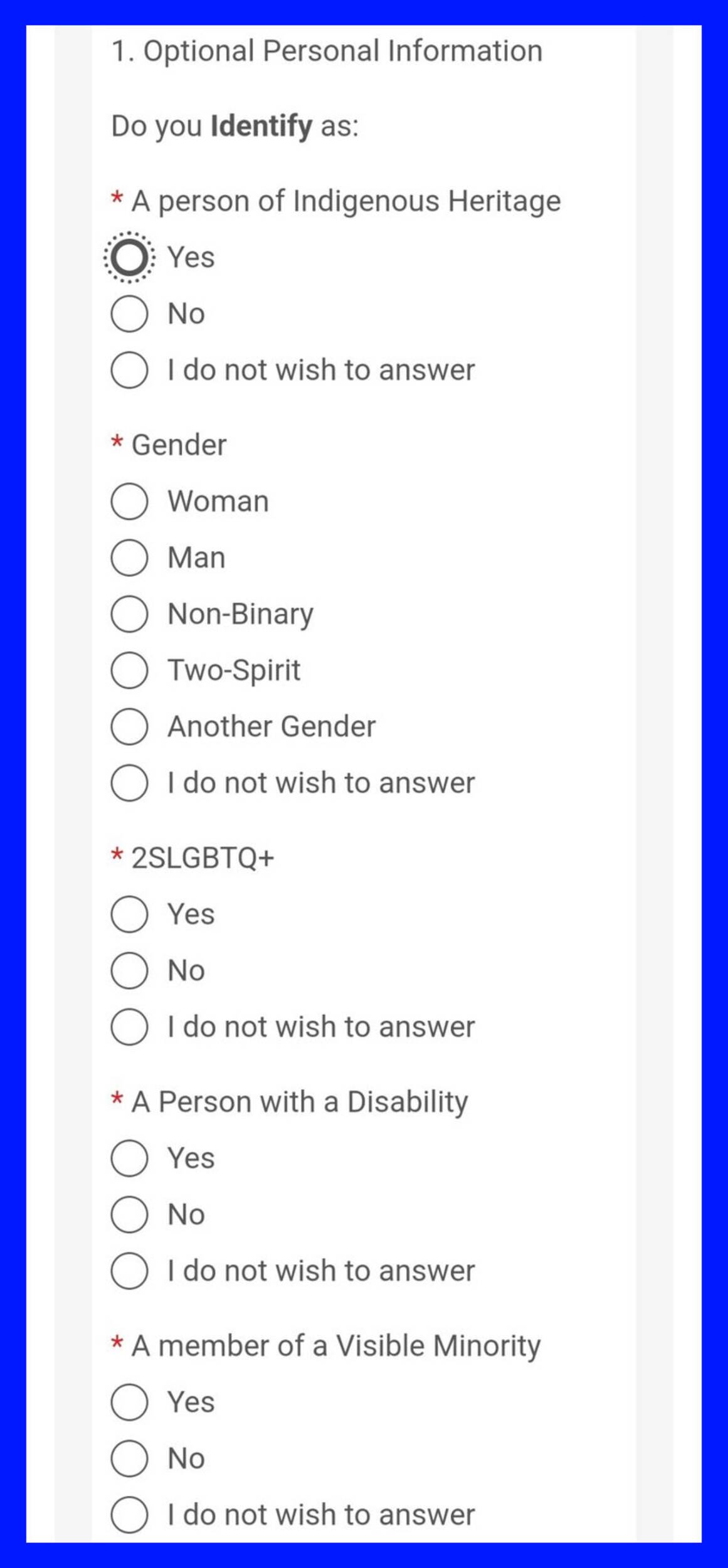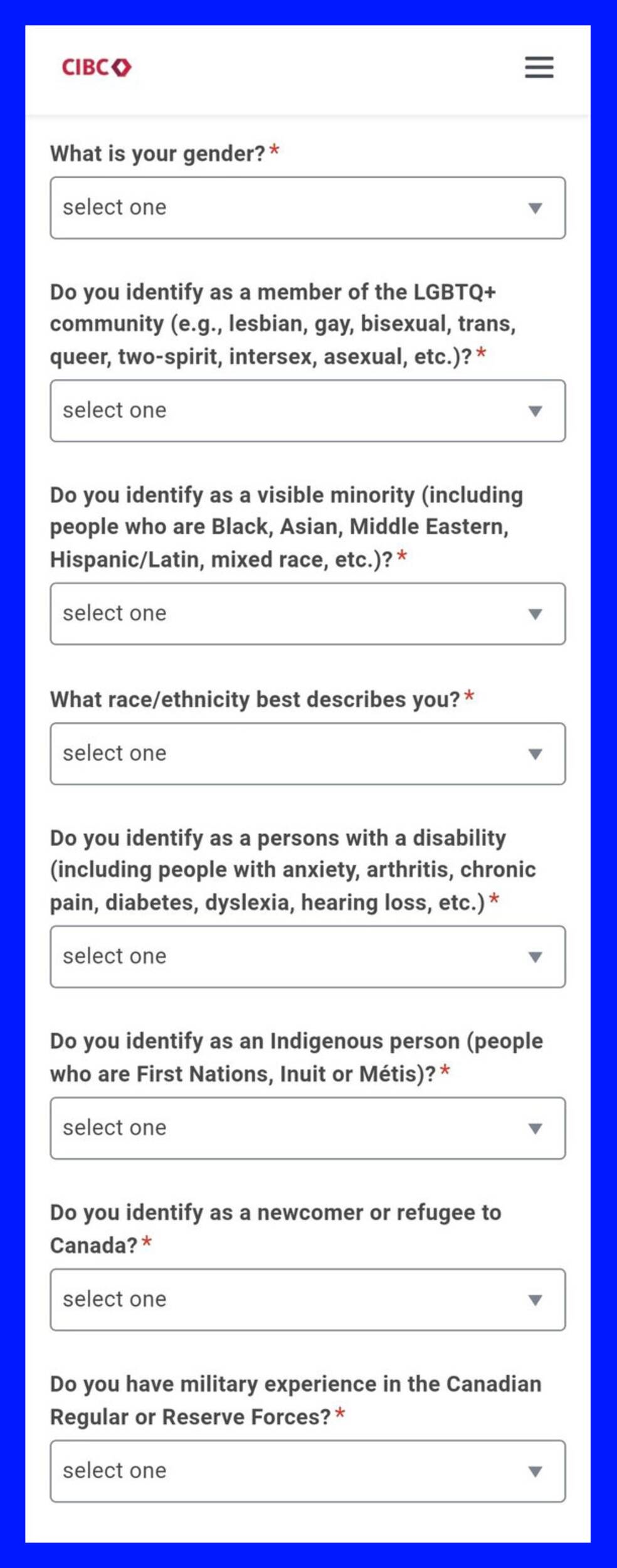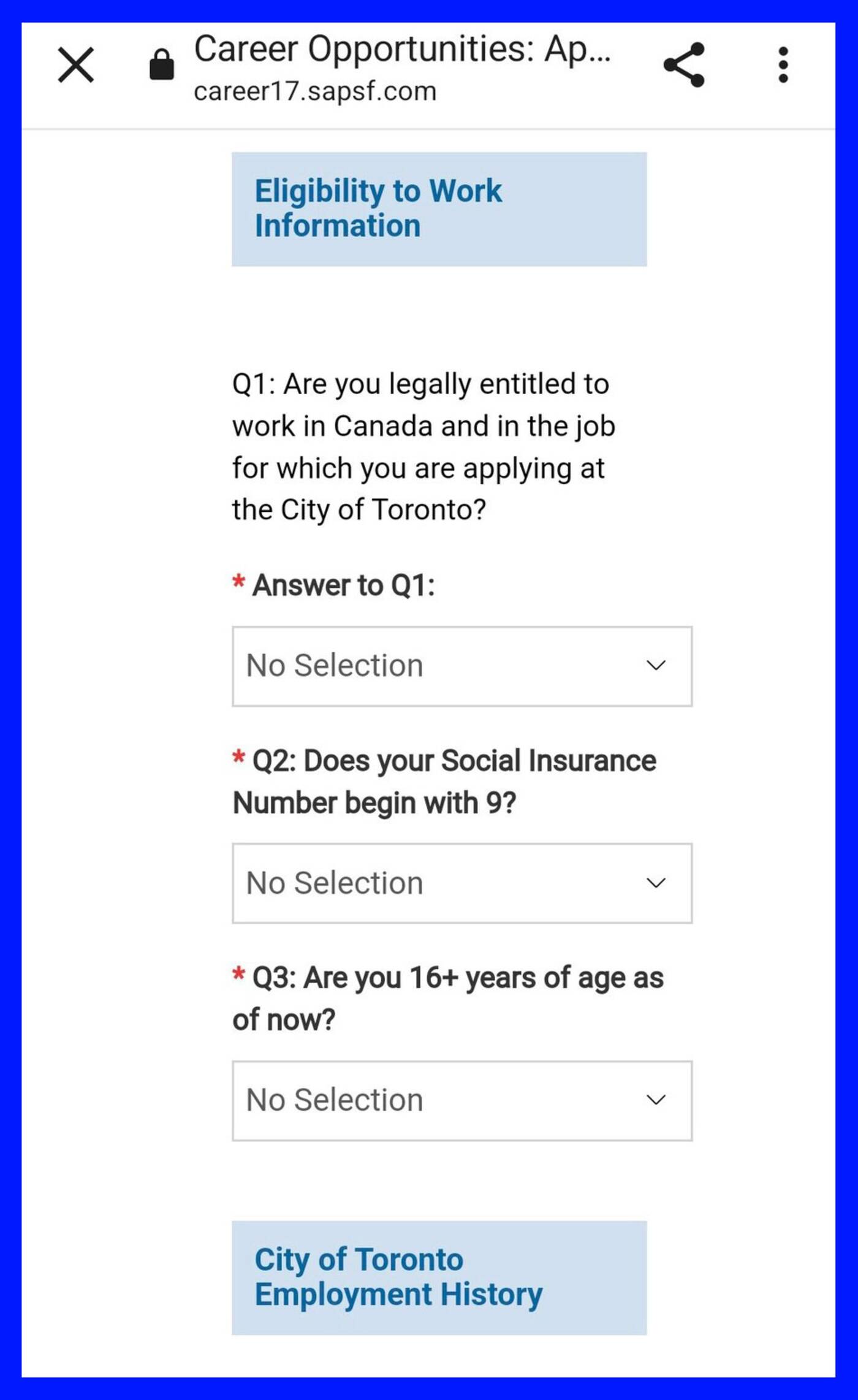
I'm looking for a job in Toronto and feel companies might be discriminating against me
Job hunting is always fun. But it is especially fun if you are a student without experience!
As if spending thousands of dollars on education and degree is not enough, we need to prove that we are worthy of a job by jumping through various hoops (multiple rounds of interviews, one test assignment after another) just to be considered for a position that pays you minimum wage.
But worry not!
Employers and recruiters know how to make it even more exciting: by violating human rights!
That's right! Hundreds of respectable companies and employers in Ontario violate your rights for equal job opportunities based on characteristics such as legal status in Canada, gender and sexual orientation, disabilities, and many more.
According to part 4 of Human Rights at Work 2008 (3rd edition), published by the Ontario Human Rights Commission, and to section 8 of the Canadian Human Rights Act, it is prohibited to use any application form or written or oral inquiry that directly or indirectly classifies an applicant as being a member of a group that is protected from discrimination.
Therefore, any application form or job posting should not ask, DIRECTLY NOR INDIRECTLY, about the following:
- Race
- Ancestry
- Place of Origin
- Colour
- Ethnic origin
- Citizenship
- Creed
- Sex
- Sexual Orientation
- Record of offences
- Age
- Martial Status
- Family Status
- Disability
Employers implement different tactics to make discriminatory questions look acceptable and reasonable.
Some companies, such as TD, include the "Inclusion & Diversity" section in their applications, speculating that providing the answers will help them to "continue to create an environment that is fair, respectful and supportive to all employees."

"Optional information" for a job application at TD.
To be fair and respectful to your employees, you need to be fair and respectful. That's it. I fail to understand how knowing the heritage, gender, sexual orientation, or disability of an applicant (not even an employee!) can help the company to be more inclusive.
However, providing such information allows an employer to discriminate without you knowing about it.
Other companies, such as CIBC, use similar excuses yet go even further and ask the applicants about the "race/ethnicity that best describes you" and whether or not they identify as a newcomer or refugees to Canada.
"A Guide to Screening and Selection in Employment," published by the Canadian Human Rights Commission, outlines that no questions about an applicant's legal status in Canada are allowed during the application process.
The only question employers are allowed to ask is whether or not you are legally permitted to work in Canada.

A job application form for CIBC.
Of course, these applications usually allow you to choose the "preferred not to say" option. However, the fact that employers ask these questions violates Human Rights. YOUR rights.
While spotting direct violations in such applications is relatively easy, making it look like an honest mistake, other employers know what they are going for.
For example, in their job application, the City of Toronto asks the applicant whether or not they are permitted to work in Canada, which is an excellent example of what you CAN ask the applicant.
However, the question right after that asks you: "Does your Social Insurance Number begin with 9?"

The City of Toronto ask an indirect question regarding SIN numbers.
What seems to be an innocent question is an act of discrimination towards an applicant based on their legal status in Canada.
SINs beginning with a "9" are issued to temporary workers who are neither Canadian citizens nor permanent residents.
According to the "Human Rights at Work 2008 - Third Edition", published by the Ontario Human Rights Commission, no questions regarding the legal status, place of birth, or social insurance number are allowed at the application stage.
While you are not being asked about your status directly, the information the employer requests gives them precisely what they want.
Some argue that these questions are being asked to ensure equity and equality in the workplace.
And indeed, questions touching upon prohibited grounds are allowed when designing or implementing special programs and measures. However, these programs/measures should be prepared for a specific population.
The CHRA refers to these practices as special programs, plans or arrangements (special programs). Special programs are intended to be a systemic response to prevent anticipated disadvantages, or to eliminate or reduce historic or ongoing barriers in employment or services.
The CHRA allows federally-regulated employers and service providers to develop and implement special programs where these are designed to prevent, reduce or eliminate disadvantages experienced by groups of individuals for reasons related to one or more grounds of discrimination ("target group").
Special programs can be used in a wide range of contexts in employment and the provision of services. Examples include:
- An employment program meant to promote opportunity for people with intellectual disabilities.
- A policy giving a reduced rate on airline fares for members of a remote Inuit community.
- A mentorship and leadership training program for Black and Indigenous employees.
Questions based on prohibited grounds allow employers to discriminate unless the job posting is designed for a specific target group.
Unfortunately, many companies in Ontario do ignore the Canadian and Ontario Human Rights Commission's guidelines to create a truly fair and inclusive environment.
And they will continue doing so - people need jobs, and complaining about your potential employer may not be a good start.
However, it is vital to know one's legal rights and responsibilities and remember that if you do not get a reply from the employer who's trying to play dirty - it's most likely for the best.
Latest Videos
Latest Videos
Join the conversation Load comments







